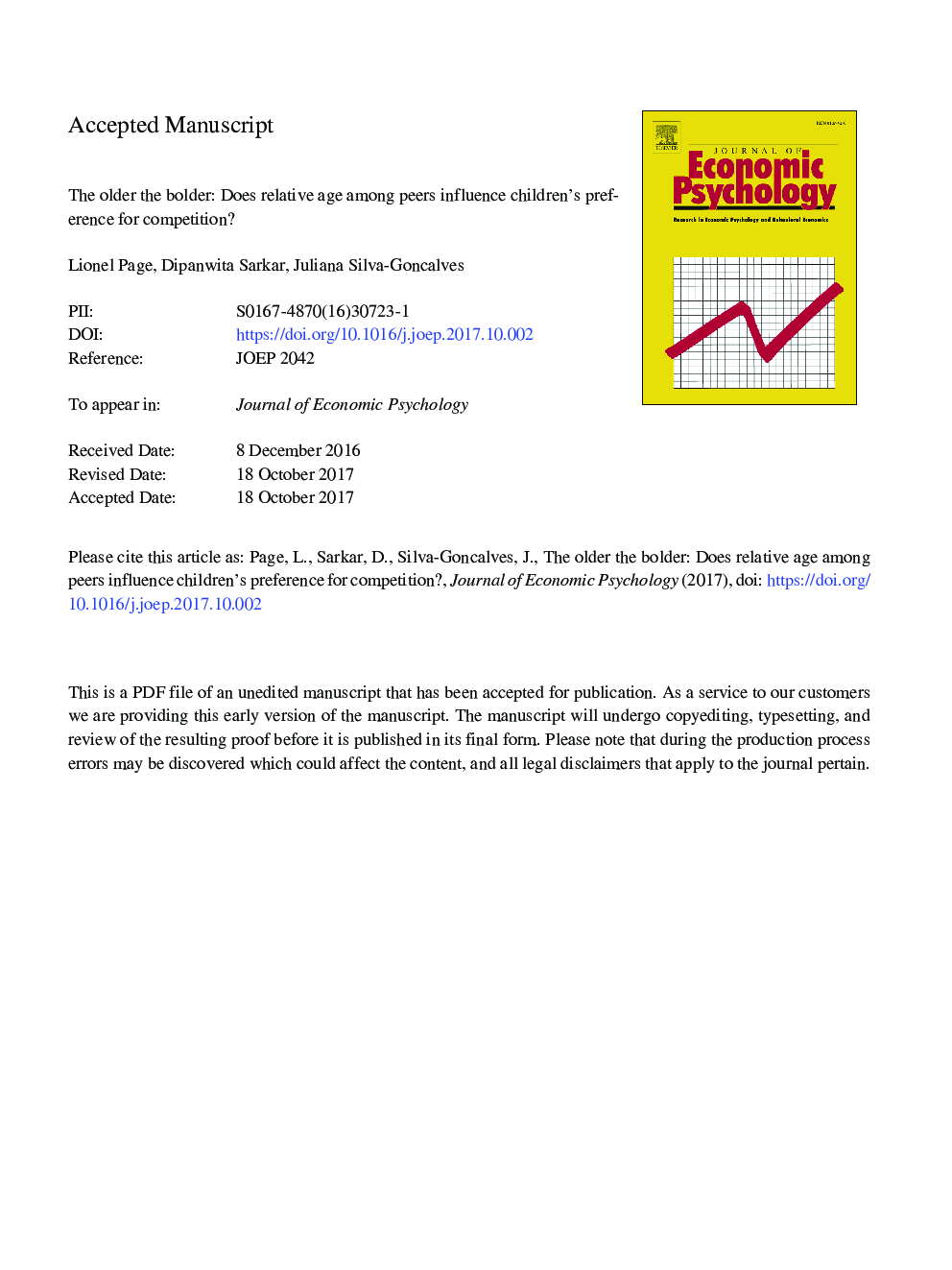| Article ID | Journal | Published Year | Pages | File Type |
|---|---|---|---|---|
| 7244130 | Journal of Economic Psychology | 2017 | 66 Pages |
Abstract
Having been relatively old at school tends to have a long lasting positive effect on professional achievement, in particular in competitive environments (sports, politics). We investigate the roots of this pattern and study whether the relative age position of children at school plays a role in shaping their preference for competition. We run a controlled experiment in high schools across two states in Australia. Our participants are students who are the very oldest or very youngest in their classroom. We elicit their preference for competition using the Niederle and Vesterlund (2007) task and find evidence of an effect of relative age. This effect is concentrated on male students. We find no differences in self-confidence, and risk attitudes between relatively old and young students. These results suggest that the observed pattern may come from pure preference for competition.
Related Topics
Social Sciences and Humanities
Business, Management and Accounting
Marketing
Authors
Lionel Page, Dipanwita Sarkar, Juliana Silva-Goncalves,
